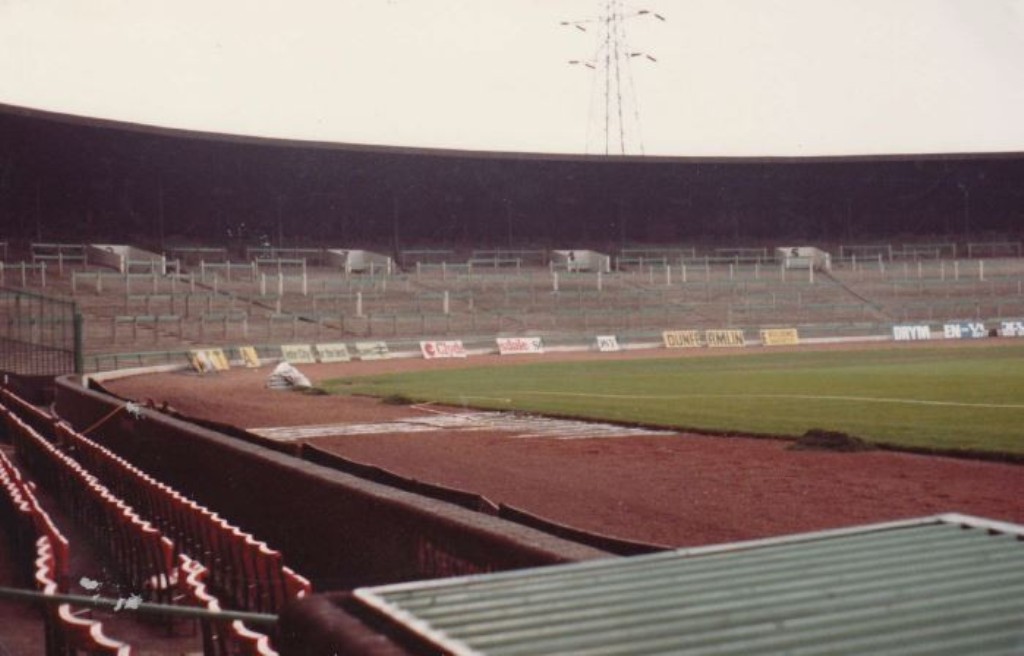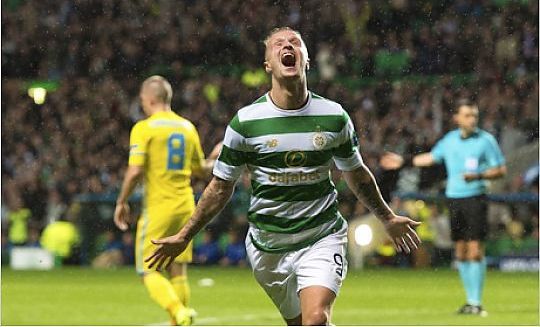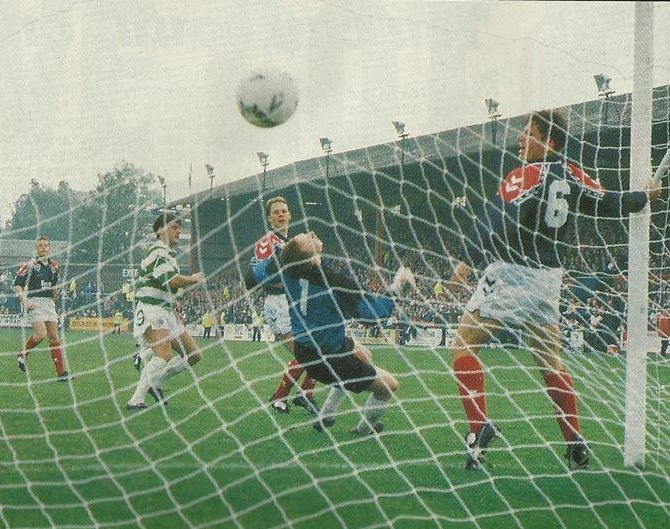These past few years I’ve had the privilege of speaking to some great Celtic players from the past and also some familiar media personalities. These events are covered for posterity on podcasts on this very site. Just key the name into the search facility on the site or just google it.
Here are short extracts from the podcasts in the very own words of the people involved. Note that this is the first part of a two part article. More to come…
Andy Lynch (referring to the disastrous season of 1977-1978) – Jock wasn’t given any money to strengthen the team so that probably tells you something about his relationship with Desmond White because big Billy later on got money to buy Davie Provan and Murdo MacLeod but you have to say why was Jock not given that money. It was a terrible time, I was captain and I was rowing against the tide. A lot of my team mates weren’t up to the task. It’s no disrespect to them but many of them were free transfer players who weren’t good enough with their own clubs. It was shambolic at that stage.
Andy Ritchie (On the day he left Celtic) – One day I got a call from big Jock saying Morton wanted to sign me and if I wanted to speak to them I was to get my big fat backside out of my bed and get to Celtic Park. I did and Hal Stewart was there with Benny Rooney and me and Hal went for a chat at Joe’s kitchen at Parkhead Cross. He said I’d play regularly. Hal was a fantastic salesman. He’d have made a great agent these days, he could sell snow to the Eskimos. I came back and big Jock took me into the boardroom. I said they’ve offered me terms and I’m thinking about it. I’ll never forget what he said. He said ‘Why would you want to go to that Elephant’s graveyard ?’ and I said ‘Well, I’m not getting a game here.’ He replied ‘Hold on’ and he called John Clark in. John was reserve coach and he said ‘If Andy wants to stay here and put the work in then I’ll play him.’ Jock said ‘Your contract’s up so we’ll give you a 4 year contract and you can sign it right now on the same terms you had before, you can decide.’ And I made probably the worst decision of my life and decided to go to Morton. He was testing the water to see how committed I was. I’ll never forget it, he stood up at the massive boardroom table at Celtic Park and he bumped his knee off one of the big legs and he cursed, got up and slammed the door.
Archie McPherson (Recalls the 1980 Scottish Cup final riot) – The riot was better than the game. It was a fluky goal, the game was very negative, very apprehensive, with the fear of losing which permeates Old Firm games. I was safely remote from it all. The match commander was standing on the touch line watching it. There were no police there, they had made a tactical error by policing outside the ground because that’s where traditionally the trouble always took place. Whilst this riot is going on, in my commentary I said, ‘For God’s sake where are the police ?’ and the match commander said to his assistant ‘What are we going to do ?’ It had just started, the fans were just meeting in the centre circle. He said ‘Will it get worse ?’ I said ‘Look at the stand’ and he turned round to see the stand, where the best patrons, in their camel coats in the dear seats, were battering each other, climbing over seats to get to each other.
Bernard Ponsonby (On Celtic’s identity) – I had a producer in here many years ago who was from Nottingham. One day he came in with a load of memorabilia including an LP, which must have been official Celtic merchandising in the mid sixties. The first song on it was The Celtic Song by Bartholomew Dick, or to give him his stage name, Glen Daly. The second song was Faith of our Fathers and the third one was the Dying Rebel. Now this was official club merchandise and back then people tended not to bat an eyelid at that kind of stuff as it was all pre the outbreak of the troubles in Northern Ireland. I said to this guy who was English, ‘What on earth are you doing with something like that ?’ and he explained to me that his father was a professor from a Jewish family who had come to the UK and started watching Celtic because he liked the way they played. Then when he researched the history of the club and found their identity he became hooked on it. Here was an English guy who had come up from Nottingham, studied at Edinburgh university, ended up as a producer at STV and became a Celtic supporter. It does indicate that there is something about the identity and traditions of the club that people really can relate to.
Billy Stark (On the 1988 Scottish Cup final) – Big Billy named the team and said this will be a 13 man job today because obviously me and Mark McGhee were disappointed not to be starting. We were 1-0 down and he brought us on with 25 minutes to go and it was a lovely sunny day with the Celtic support out in full force and in that sun the green and white is almost blinding and I’ll never forget the roar when we won a corner. We’re still 1-0 down and we got a corner and this roar from the Celtic support just about sent a shiver down my spine, you know you find an extra gear, you find something else without a doubt. That’s the thing that sticks out for me that season they refused to accept we were going to lose that game.
Charlie Gallacher (On the 4-0 disaster at Ibrox at new year 1963) – It was a horrible day of snow and sleet and the game should never have been played. Paddy Crerand shouldn’t have did what he did, that what was the day that he told Sean what he thought of him and that was the end of Paddy Crerand. Paddy bought his way to Manchester at that time and everybody will tell you that. He was desperate to go to Man Utd.
Chick Young (on Billy McNeill) – A football club is only as good as the people in charge of it at any given time. Billy McNeill I absolutely adored, he was fantastic to me. I remember going with Celtic on a pre-season tour in 1980 to Germany for about ten days and I was the only Scottish journalist on the trip. Billy gave me a lift back from training and he wouldn’t let me on the bus until I had sang the Celtic song in front of the whole team on the bus. And that’s what I mean by good people.
Danny Crainie (on his memory of playing Rangers in 1982) – I was taught a lesson by a player, which would stand me in good stead for the rest of my career, Sandy Jardine. I’d heard people talking about being touch tight but I didn’t really know what they meant. I would feel Sandy at the back when I got the ball and I’d try and spin away but he was always there. I don’t think I had a particularly good game that day and I scored the goal but I got the biggest lesson I ever got in football and it taught me an awful lot.
Davie Provan (on being asked who was the best Celtic striker he had played with) – Brian McClair got himself into more scoring positions than any other striker I ever played with, he had an uncanny knack of being in the right place at the right time. I loved McGarvey to bits, the work rate he had, he was just a fabulous competitor. Charlie, just a genius, Mo, a great natural finisher. George McCluskey as I said, a natural talent, to get the chance to play with all these guys, I couldn’t put one above the other.
Frank McGarvey (remembering Johnny Doyle) – Doyley always said ‘I’m the man!’ and I’d scored a few goals and one day in Germany I was winding him up. The bus was leaving at 2 o’clock and I went into the boys and said ‘Just to let you know lads, I’m the man and anyone who says anything else is getting a doing.’ I would never fight Doyley, you’d have to kill him to beat him. At 2 o’clock I couldn’t back down. Doyley said ‘I’ve got a problem’ and I said ‘Right up the back.’ He took it really serious. He was a strong, strong wee guy, wiry. A determined guy. We started wrestling each other, he had me in a neck hold and I’m saying ‘Doyley, I’m only kidding on’. I had to do something I didn’t want to do to get him to release me and I’m thinking I’m not doing that again.





